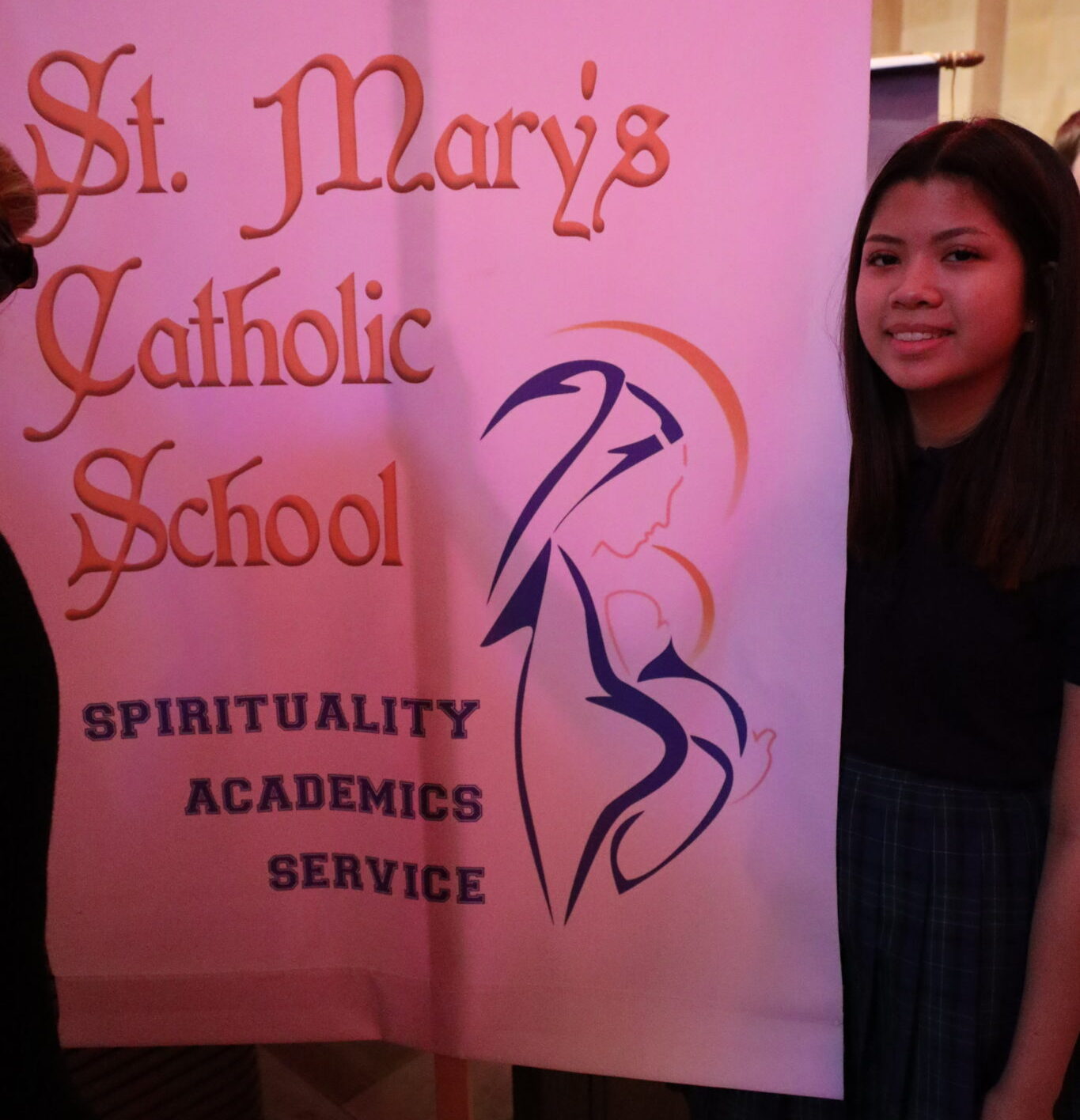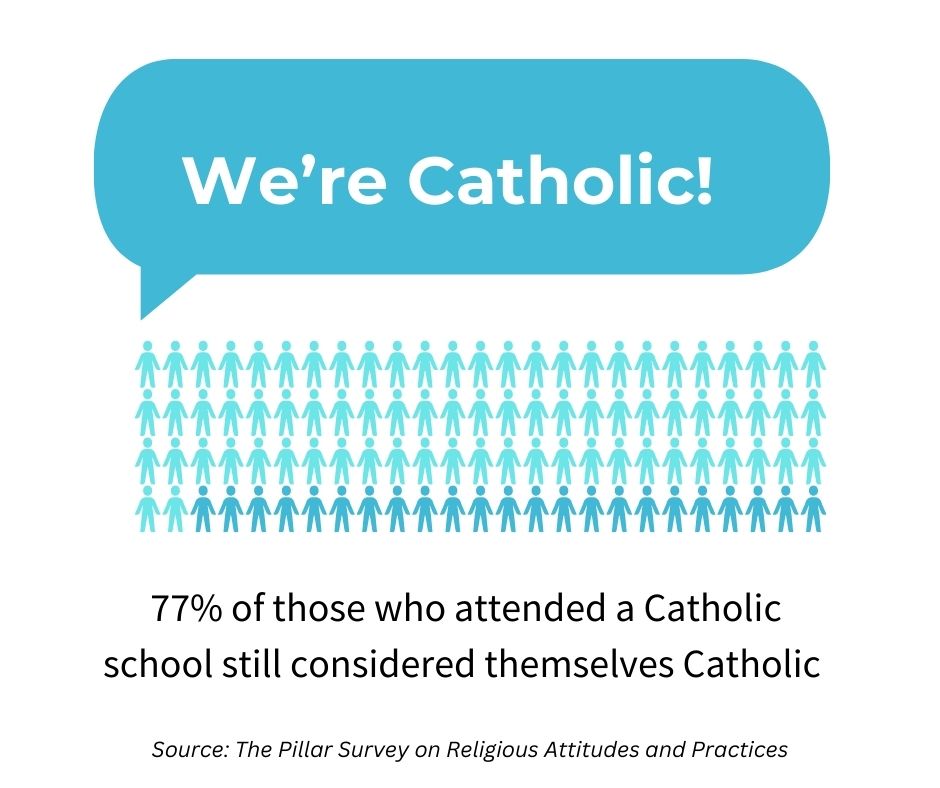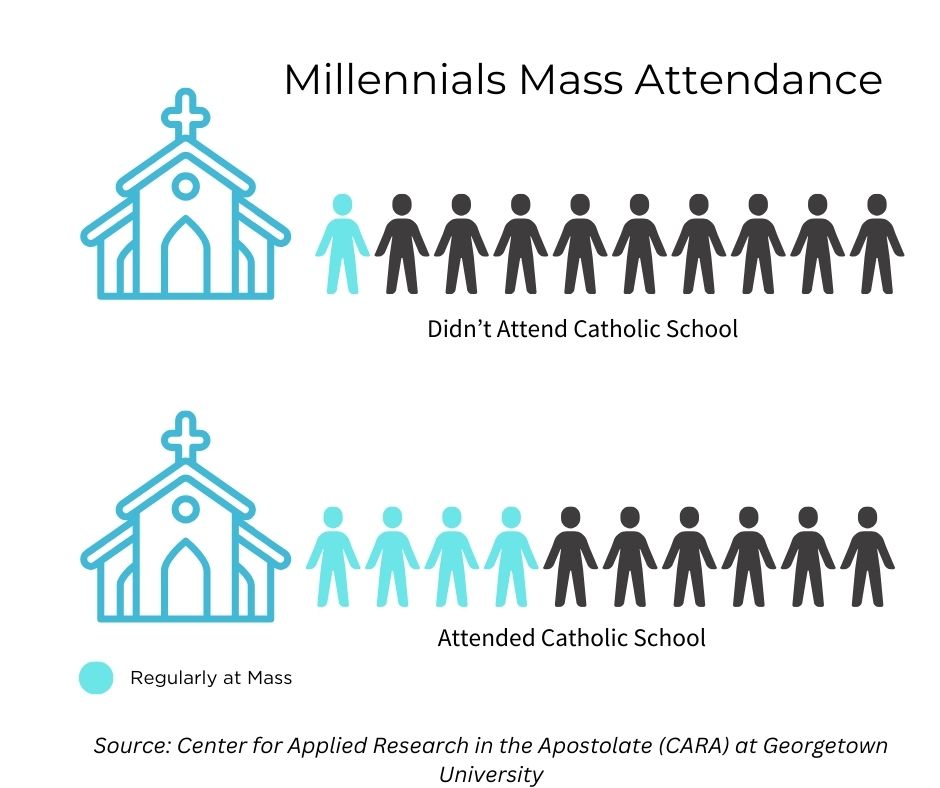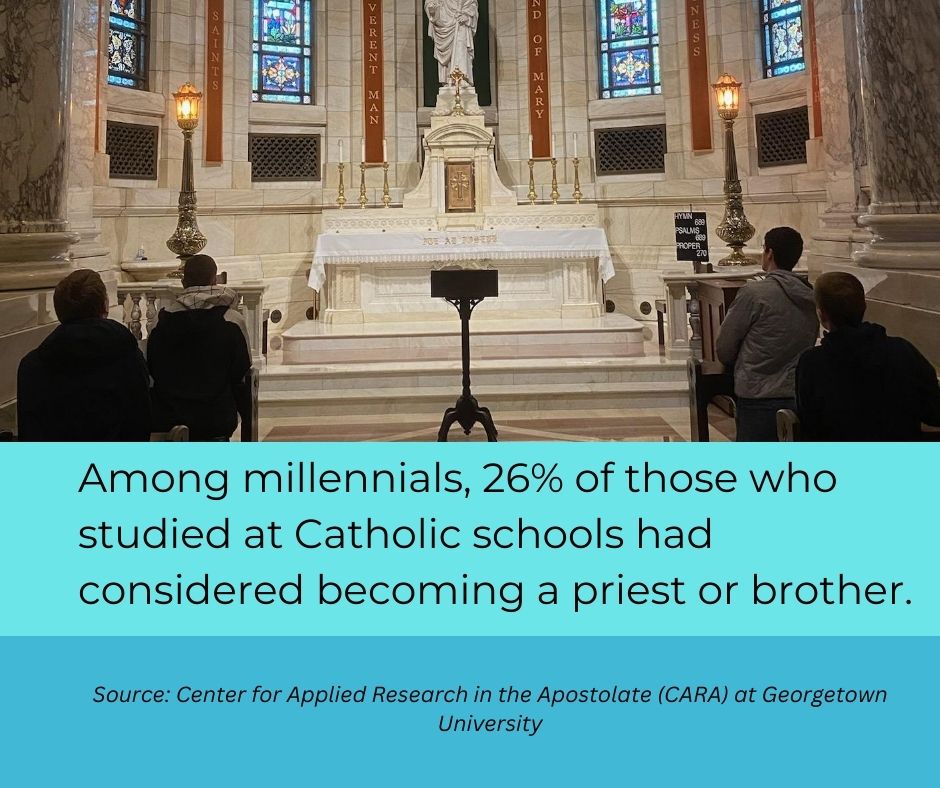
Equipping Disciples
Catholic schools foster a lifelong faith, studies show
January 26, 2024
Declining Mass attendance, fewer people identifying as Catholic, fewer Catholics believing in the real presence of Jesus in the Eucharist, a growing need for more priests and religious sisters and brothers.
Polls and statistics point out many challenges for the Catholic Church, but there is a beacon of light in the gloomy statistics: Catholic schools.
While several factors help determine whether children who are raised Catholic will continue practicing their faith as adults, a Catholic school education helps, studies have found.
“Strong moral values” and “quality religious education” are top reasons parents choose to send their children to a Catholic school, according to studies by the Center for Applied Research in the Apostolate (CARA) at Georgetown University.
Catholic schools teach the Catholic faith, put it into practice and offer students and their families community and opportunities to serve.
Those benefits begin at school and endure long past graduation.
“Catholic school students are more likely to pray daily, attend church more often, retain a Catholic identity as an adult and donate more to the Church,” according to the U.S. Conference of Catholic Bishops, in its document “Our Greatest and Best Inheritance: Catholic Schools and Parental Choice.”
As a Catholic school parent, teacher, administrator and now superintendent of Catholic schools for the Archdiocese of Omaha, Vickie Kauffold can attest to the difference Catholic schools make.
“There is a richness and a meaning to the faith that brings comfort and a sense of centeredness to our lives,” Kauffold said. “When you are a graduate of a Catholic school, you know where to go to keep yourself grounded in the busy-ness of life.
“God is always there and desires a deeper relationship with each of us,” she said. “Sometimes it takes a bit of time and some additional life experiences, like starting your own family, before you remember and return to teach your children about the love of God.”
In 2021, The Pillar – an organization that provides news and analysis of the Church – conducted a Survey on Religious Attitudes and Practices.
The survey of adults found that 77% of those who attended a Catholic school still considered themselves Catholic, compared with 69% of those who went to a public school.
“We tried controlling our data for childhood Mass attendance, family religious practices, etc. – But in all cases, we found a clear difference, in both adult Catholic identity and weekly Mass attendance, between people who went to Catholic schools and their public school counterparts,” The Pillar said.
A 2007 survey of 849 “cradle Catholics” – conducted by the Journal for the Scientific Study of Religion – found that attending a Catholic high school for at least three years “significantly reduces the likelihood that one disaffiliates from Catholicism, reducing both the likelihood that one converts to another faith and the likelihood that one chooses to have no religion at all.”

A Catholic education seems to help keep people in the pews, studies show.
According to The Pillar, 36% of Catholic adults who went to Catholic schools said they are still Catholic and attend Mass weekly, while 41% said they are still Catholic but go to Mass less often.
Those numbers compare with 25% of Catholics who were public school students and still identify as Catholic and go to weekly Mass, along with 44% who said they were still Catholic but attended Mass less frequently.
According to a 2012 study cited by CARA, the most striking difference was among Catholics born in 1982 or later. Among the younger generation, 34% of those who went to a Catholic primary school attended Mass weekly or more often, and 39% of those who attended a Catholic secondary school attended Mass regularly.
In contrast, among those who never attended a Catholic school, only 5% went to Mass weekly or more often.

“Another key area where Catholic schools have a strong impact is on vocations,” according to CARA researchers.
About ten years ago the organization surveyed never-married male Catholics (ages 14 and older) and found that among the millennial generation 26% of those who studied at Catholic schools had considered becoming a priest or brother.
In contrast, 9% of those who had never attended a Catholic school considered a religious vocation.
Among never-married millennial-generation females (14 and over) who attended Catholic schools, 13% or more said they had considered becoming a sister or nun. In comparison, 6% of those who did not attend Catholic schools had considered a religious vocation.
“The connection between Catholic schooling and interest in vocations is found to be robust and statistically significant,” the researchers wrote, “even after controlling for a variety of other factors (e.g., enrollment in parish-based religious education, frequency of Mass attendance, race and ethnicity, income, other youth experiences).
“Catholic schools are part of a pipeline that provides a major source of vocations and ministers.”
Father Scott Schilmoeller, archdiocese vocations director, would agree.
“Any environment which introduces young people to Jesus and encourages friendship with Him is an environment which helps foster vocations,” he said. “If a young person is familiar with the voice of Jesus, then when Jesus calls that young person to a particular vocation they will recognize his voice and hopefully be surrounded by a supportive environment where they can freely say ‘yes’.
“Catholic Schools help serve this purpose,” Father Schilmoeller said. “They provide another environment, alongside the home and parish, which helps foster a deep, living relationship with Jesus.”

A 2023 study by CARA indicated that Catholics who were educated in Catholic schools had a better understanding of the core Catholic belief in the Real Presence of Jesus in the Eucharist.
Among those who received a Catholic primary school education, 72% said they believed in the Real Presence of Christ in the Blessed Sacrament, compared with 59% who had schooling elsewhere.
Among those who attended a Catholic high school, 74% believed in the Real Presence, compared with 61% of respondents who did not go to a Catholic high school.
READ MORE FROM THE CATHOLIC VOICE: